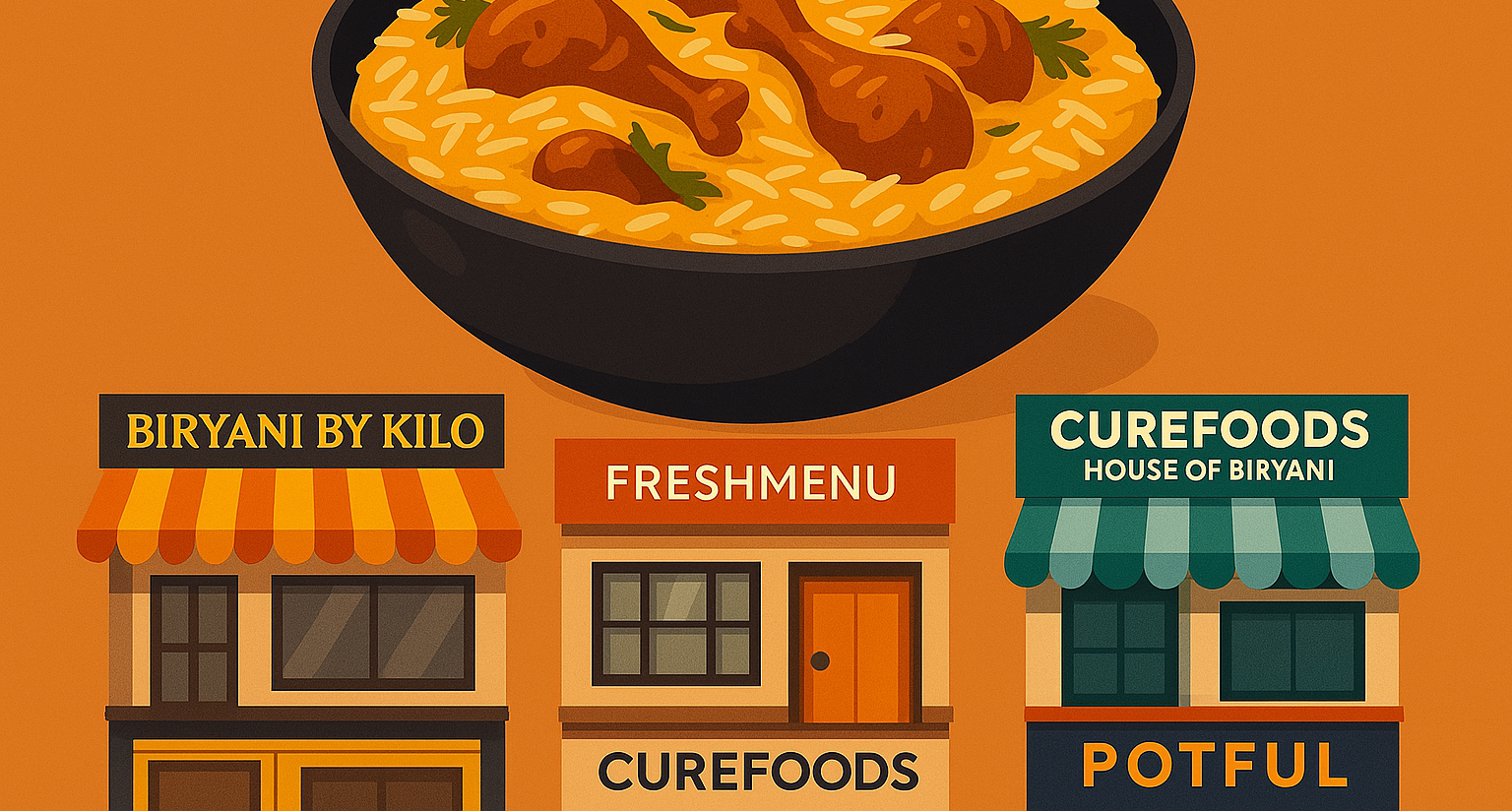Biryani isn’t just India’s most ordered dish, it’s fast becoming the nucleus of a multi-crore business revolution.
According to a LinkedIn post by a growth strategist Akshit Goel, India’s total biryani market is estimated at a whopping ₹16,500 crore. Yet, only ₹1,500 crore of this lies in the organised sector, leaving a staggering ₹15,000 crore up for grabs, spread across roadside vendors, small eateries, and home-run kitchens. That’s 91% of the market still unorganised. And the hunger isn’t slowing down anytime soon.
A Nation Obsessed: 83 Million Biryanis in a Year
Swiggy’s 2024 food delivery data underlines the craze: the platform delivered 83 million biryanis last year. That’s 158 biryanis every minute. While quirky orders like 250 onion pizzas from a single user in Delhi made headlines, biryani still remained the undisputed champion of Indian cravings.
The Organised Biryani Market: Small but Booming
The organised sector of the biryani business is currently worth ₹1,500 crore, driven largely by cloud kitchens, QSRs (Quick Service Restaurants), and internet-first food brands. With growing demand for convenience, high repeat purchase behavior, and better unit economics, brands in this space are witnessing steady growth.
As Goel notes, top brands see average order values of ₹700–₹800 and are leveraging tech-driven logistics, lower real estate costs, and data-backed delivery partnerships to scale efficiently.
Who’s Dominating the Plate? A Look at the Top Players
Here’s how the market stacks up:
- Rebel Foods (Behrouz Biryani) – With a 38% market share, Rebel Foods clocked ₹1,420 crore in FY24 revenue. With 450+ cloud kitchens across 75 cities and $210M+ raised, they’re a dominant force despite negative EBITDA margins (-10.76%), which have significantly improved from the previous year (-30%).
- Curefoods (Aligarh House Biryani, EatFit) – With a 35% market share, the brand posted ₹585 crore revenue in FY24 and halved its net loss to ₹172.6 crore. Backed by Accel and Binny Bansal’s Three State Ventures, Curefoods runs 100+ kitchens and is positioning itself as a brand aggregator.
- House of Biryan – Currently holding 11% of the organised share, it’s targeting a ₹100 crore run rate by December 2025. With $3M raised and 40,000 monthly orders, the brand aims to scale to 30 outlets nationwide.
- Biryani By Kilo (BBK) – With a 7% market share and FY24 revenues of ₹268 crore, BBK focuses on cutting losses (down by 30%) while scaling. The company is valued at ₹840 crore and backed by Alpha Wave Global and IvyCap Ventures.
- Potful and Others – Smaller brands together make up the remaining 9%, serving niche and regional audiences.
Lessons from the Field: Unit Economics Over Hype
Goel’s analysis points out that sustainability and smart scaling are key. Brands like BBK are consciously cutting down on marketing spends and staff expenses to move toward profitability. Cloud kitchens remain the preferred route for scaling thanks to their low overheads and ability to rapidly expand into new cities.
Interestingly, the success of the organised segment also lies in regional authenticity. It is not Hyderabadi or Dindigul biryani but a broad range of flavours and cooking methods. This localisation drive is enabling brands to connect better with customers.
Tamil Nadu: A ₹10,000 Crore Goldmine?
One of the most lucrative yet untapped regions is Tamil Nadu, a state with a ₹10,000 crore biryani market—of which 75% is still unorganised. This highlights a massive gap and a potential entry point for brands looking to scale.
From Kitchens to Unicorns?
While biryani may sound like a traditional, humble dish, what’s happening behind the scenes is nothing short of a modern F&B transformation. The customer loyalty is unmatched, tech integration is seamless, and funding is pouring in. Yet, the kicker? Organised biryani brands still account for just 9% of the total market.
Final Takeaway
What India is witnessing isn’t just a food trend—it’s the rise of a new consumer economy where legacy street food is being turned into venture-backed, scalable brands. As Akshit Goel aptly puts it, this isn’t just food delivery. It’s the making of a modern Indian F&B revolution.
Also Read: Zomato Lays Off 500-600 Customer Support Employees
























